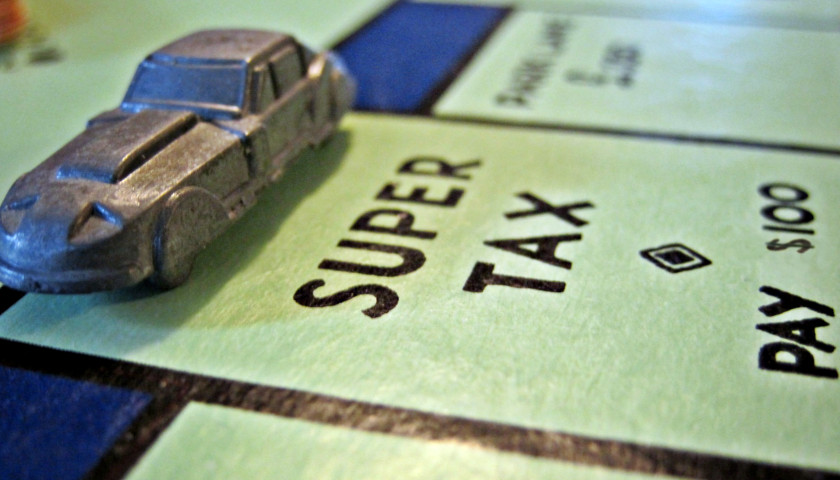by Morgan Sweeney
As the holidays approach, so does another, less joyful event for some Virginia localities: Personal property tax deadlines.
All states impose real estate property taxes on their residents, but not all states levy taxes on other forms of property, like motor vehicles, boats, planes or mobile homes. WalletHub released a study in February showing that of the 26 states with vehicle property taxes, Virginia has the highest tax rate, hovering, on average, around 3.96 percent.
Virginia has collected personal property taxes since 1782, according to the Library of Virginia. Property included in the tax has varied with time and technology, but the tax has essentially applied to cars since their advent.
The General Assembly passed the Personal Property Tax Relief Act in 1998 in an attempt to phase out the tax. The law required the state to subsidize taxes owed on the first $20,000 of the car’s assessed value. But 2004’s General Assembly put a stop to the phase-out for fear of what it would do to local government revenues, capping annual relief from the state at $950 million, to be distributed among the commonwealth’s municipalities.
Though the vehicle property tax is universal in Virginia, most of its features are not. How vehicles’ value is assessed, the tax rate, when the tax is exacted, whether the tax is pro-rated or not – all of these details come down to the local governing body and what it decides.
All Virginia localities are required by law to use standards determined by a third-party to assess vehicle value. Fairfax County, for example, uses J.D. Power’s used car guide.
Vehicle property tax rates are determined by the county board of supervisors or the city council in the case of an independent city. Pittsylvania County has the highest rate of all Virginia counties at 9 percent. The next-highest is Spotsylvania County at 5.42 percent, followed by Arlington, Greene and Greensville counties at 5 percent.
Of the commonwealth’s independent cities, Buena Vista has the highest rate at 5.85 percent, followed by Alexandria at 5.33 percent.
Some towns have additional vehicle personal property taxes, like Chatham in Pittsylvania, with a 4.5 percent rate (most town rates are less than 2 percent).
Most Virginia localities send out invoices to vehicle owners (or lessees) in the summer or fall, with a deadline for payment of October or Dec. 5. Some split the tax into two semi-annual payments, like Loudoun or York counties.
Finally, some localities pro-rate the tax, meaning if a vehicle owner moves to the area after the tax is assessed for that year, the rate is calculated based on the portion of the year the owner is a resident.
Tax policy analysis group The Tax Foundation suggests that states should “[transition] localities from TPP (tangible personal property) taxes as a revenue source” as, according to the Foundation, they “alter business investment decisions and where people decide to live.”
– – –
Morgan Sweeney is a staff reporter at The Center Square.
Photo “Tax Time” by Images Money CC2.0








